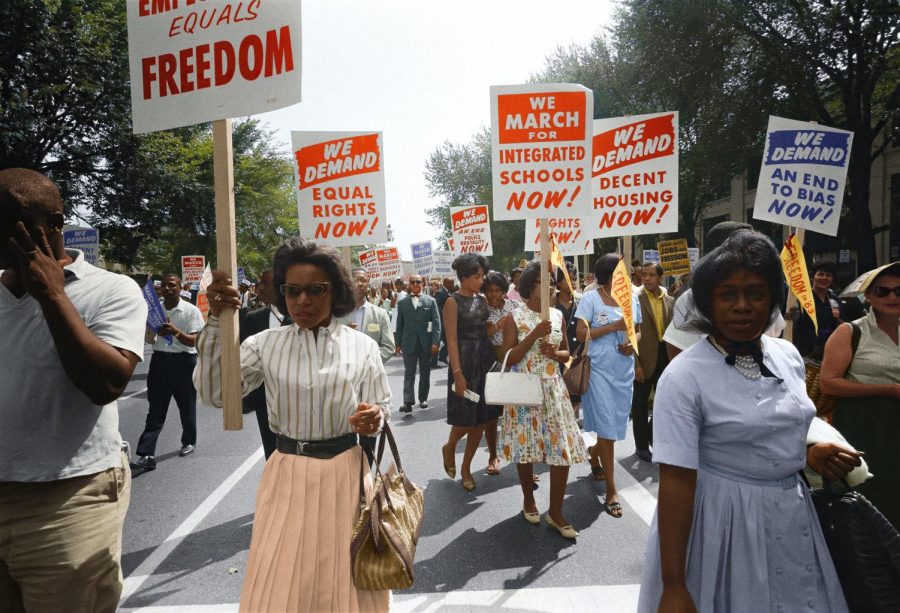Column: University should offer a degree in African American Studies
September 6, 2021
“A people without the knowledge of their past history, origin and culture is like a tree without roots.” – Marcus Garvey.
Historically Black Colleges and Universities (HBCUs), were explicitly created to provide a safe haven for African Americans who wanted to continue their education. Out of the 107 HBCUs across the country, only four (Jackson State University, Florida A&M University, Spelman College, and Howard) offer African American Studies as a major, with Howard offering a doctorate degree. A number of predominantly white institutions (PWIs) offer bachelors, masters, and even doctorate degrees in African American Studies with Harvard being the epitome of success in that field. Why is that?
Less than 4% of our Black colleges and universities offer a deep dive into the historical struggles, victories, and battles our ancestors have faced. While some offer a minor in African American studies, a major is the only way to do our history justice and to explore it fully. Attending a university that resides in one of the most historically relevant cities in America, Montgomery, I expected to receive a plethora of compelling, energetic, and dynamic teaching lessons regarding Black history and Black struggles, but instead, I have been taught the same information that we are indoctrinated during the K-12 school system. It’s certainly a disservice to the Black community, especially in Montgomery, to not be taught the unheard or rewritten stories and experiences of the Black brothers and sisters who paved the way for us to be here now, and not just MLK’s “I Had A Dream” speech.
Not instilling the pride, history, and heritage of Black students after leaving an HBCU causes them to walk around society not truly knowing their identity or self-worth. Many of my friends can rap a Jay-Z song down to the melodic tempo but do not even know Claude McKay or Claudette Colvin. That is a problem. We cannot just have one time of the year where we celebrate our accomplishments and contributions that is Black History Month, but we also need a curriculum and courses that enrich and expose our Black students to Black excellence in higher learning environments.
Since attending Alabama State University, I have only taken one class pertaining to the African American experience – African American Humanities. This class was required for all freshmen, where we learned about the same historical figures of Martin Luther King, Rosa Parks, and Langston Hughes. Though I enjoyed the class, I would have loved to learn more about our university’s unsung heroes and stories, such as Ralph Abernathy or Fred Shuttlesworth. People like Abernathy and Shuttlesworth played a tremendous role in the civil rights movement. I only learned about them through research since very few courses at ASU offer the discourse of influential people in Black history and their significant contributions to society.
According to Johnny Taylor, president and CEO of the Thurgood Marshall College Fund, a program in African American Studies is very difficult to sustain in good times and it is near impossible in tough times. However, with the insurgence of several HBCUs receiving tremendous amounts of donations from notable philanthropists such as McKenzie Scott, it is possible to create African American Studies programs. The only foreseeable problem would be getting students to enroll and stay enrolled in the program at HBCUs since the majority, in recent years, have (arguably) lost their standard of excellence and gained a standard of mediocrity.
To attract and retain students in African American Studies, institutions will need to hire passionate and knowledgeable professors who love teaching Black history to educate the next generation further. Since most students have short attention spans, the professors will have to have innovative and fun methods of teaching that will encourage participation, retention, and appreciation. Once that reputation is established, the program will not only grow internally but externally as well generating more revenue for the institution and the program.
As a number of states have banned the teaching of critical race theory and slavery, it is imperative that HBCUs have the knowledge and resources to teach their students the Black experience and history. If Black history is being erased, we have to be the ones to step up and take reign. So Alabama State University, what steps are you taking to keep our history and roots fertilized?
If we do not have the appropriate nutrients and resources such as a major in African American Studies, where are we to learn about our ancestors – a PWI?
“If you’re not telling your own story, someone else is telling it to you.” – Michael Margolis








